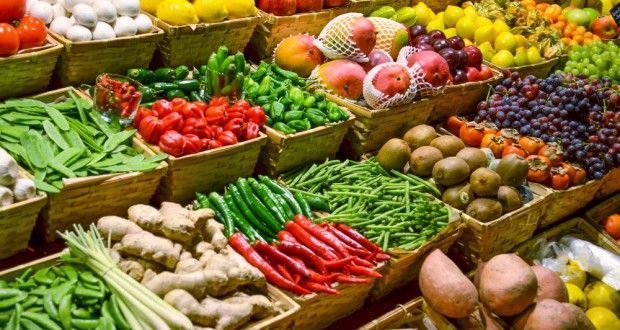The Nigerian Senate has urged the Federal Government to introduce the Nigerian version of the food stamps programme as an interventionist measure to cushion the effects of food insecurity and shortages in the country.
The Legislature also mandated the Federal Ministry of Agriculture to liaise with development partners and other relevant stakeholders, especially the Lagos Food Bank Initiative, which introduced the Temporary Food Assistance Programme (TEFAP) a few years ago, to work out practicable templates and implementable modalities for the actualization of the programme.
The resolutions were a sequel to a motion sponsored by Senator Mohammed Ali Ndume (Borno South) and co-sponsored by the Senator representing Kwara Central, Saliu Mustapha, at the plenary on Tuesday.
Presenting his motion, Senator Ndume noted that at the unveiling of the October 2023 Cadre Harmonisé Analysis on food insecurity, it was projected that in 2024, Nigeria is expected to see about 26.5 million people, grappling with high levels of food insecurity.

He said that the introduction of food stamps in Nigeria as an interim measure will help to address imminent food insecurity in the country.
“The reason for the above projection is not far-fetched, as several indicators, which include but are not limited to the ongoing conflicts across the country, climate change impacts, escalating inflation as witnessed in recent times, and rising costs of both food and essential non-food commodities, due to falling in the value of the naira in the exchange market.
“Worried that many hungry and angry Nigerians have been expressing their frustration and anger over the recent increase in food prices by demonstrating on the streets in several cities across the country,” Senator Ndume said.
The Senate Chief Whip observed that in other countries, like the United States of America, food stamps, which are government-issued coupons that are given to low-income and non-income persons and are redeemable for food, have been used since 1939 to date as a measure to cushion the resultant hardships and sufferings of the poor/less privileged as well as low-income earners.
The lawmaker expressed concern that the clamour for a wage increase and work support cannot alone guarantee a more effective way of addressing food insecurity without the introduction of a time-tested public assistance programme, as contemplated by this motion, with particular emphasis on the need for immediate food support across the country.
All the lawmakers who spoke supported the motion.
Senator Asuquo Ekpeyong, who said the initiative was laudable, demanded that measures be put in place to guide against its abuse, while Senator Abba Moro (Benue South) said there is “no better time than now to devise ways to deal with food security.”
Senator Suleiman Sadiq, representing Kano North, urged his colleagues to give serious thought to the motion as Nigerians are in dire need of food.
“There is a dire need for us to provide a system that is foolproof, to provide for ordinary Nigerians. Let us give serious thought to this document and encourage the executive to adopt it as a working document. This is so apt and we should encourage Mr. President. But we should ensure that people don’t take advantage of it. We should have a foolproof programme to ensure that only those who need the food get it.” he said.
Senator representing Ogun West, Solomon Adeola Olamilekan, called for the deployment of modern technology to curb abuses.
“The question is: how do we achieve this for over 200 million people? Our data must be in place, to ensure that the most vulnerable Nigerians get it. I am in total support of this to take care of the vulnerable Nigerians.”
Speaking with newsmen shortly after presenting the motion, Senator Ndume said the food stamp would work better than the cash transfer.
“The cash transfer system is enmeshed in massive corruption. A food stamp is given to you to buy specific foodstuffs. You go to the food centre and in return, you are given food. You can register with your BVN, NIN and in a month you can use it.
“If you give workers food stamps they can go and collect food and that’s what they need for now. It is better than a cash transfer” he said.


Comments are closed.